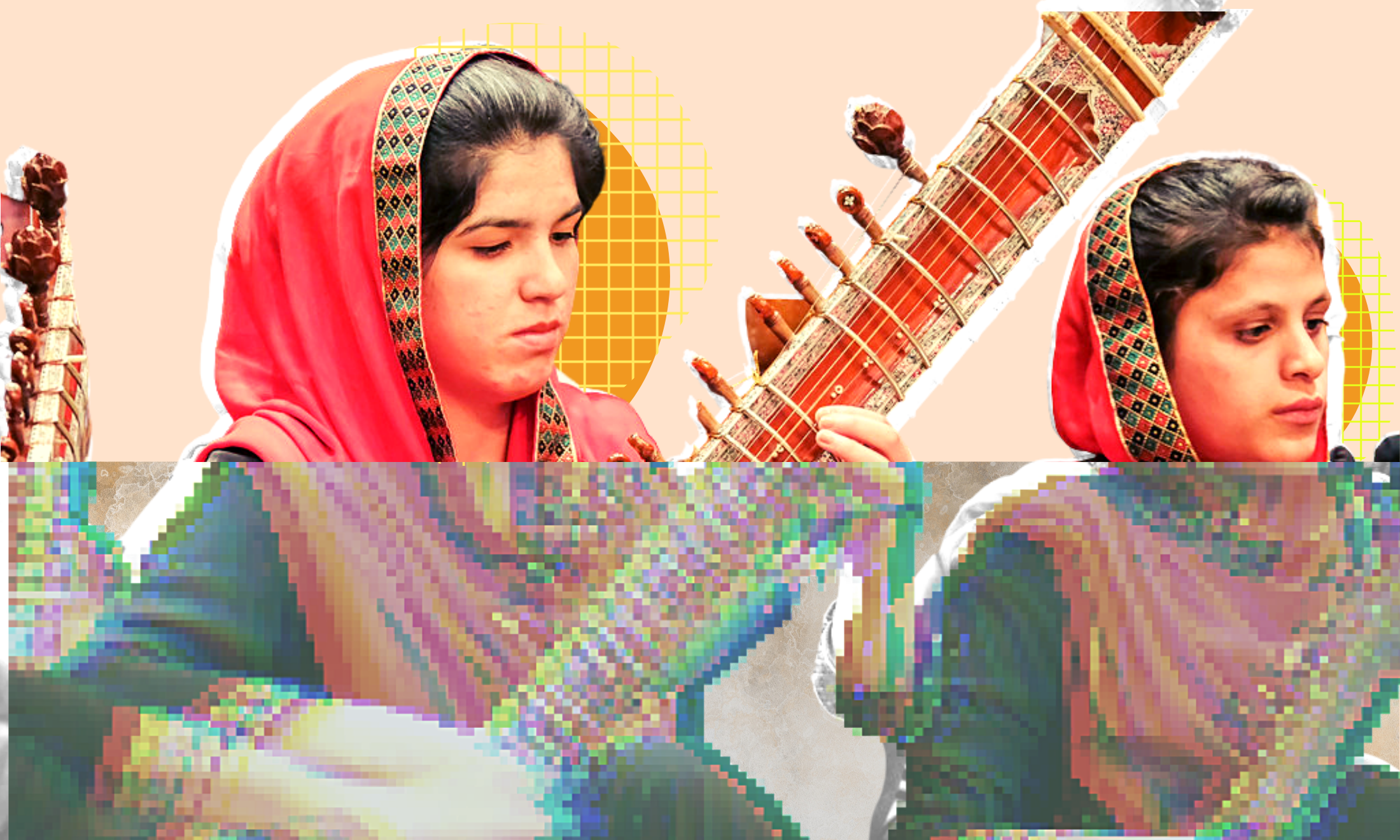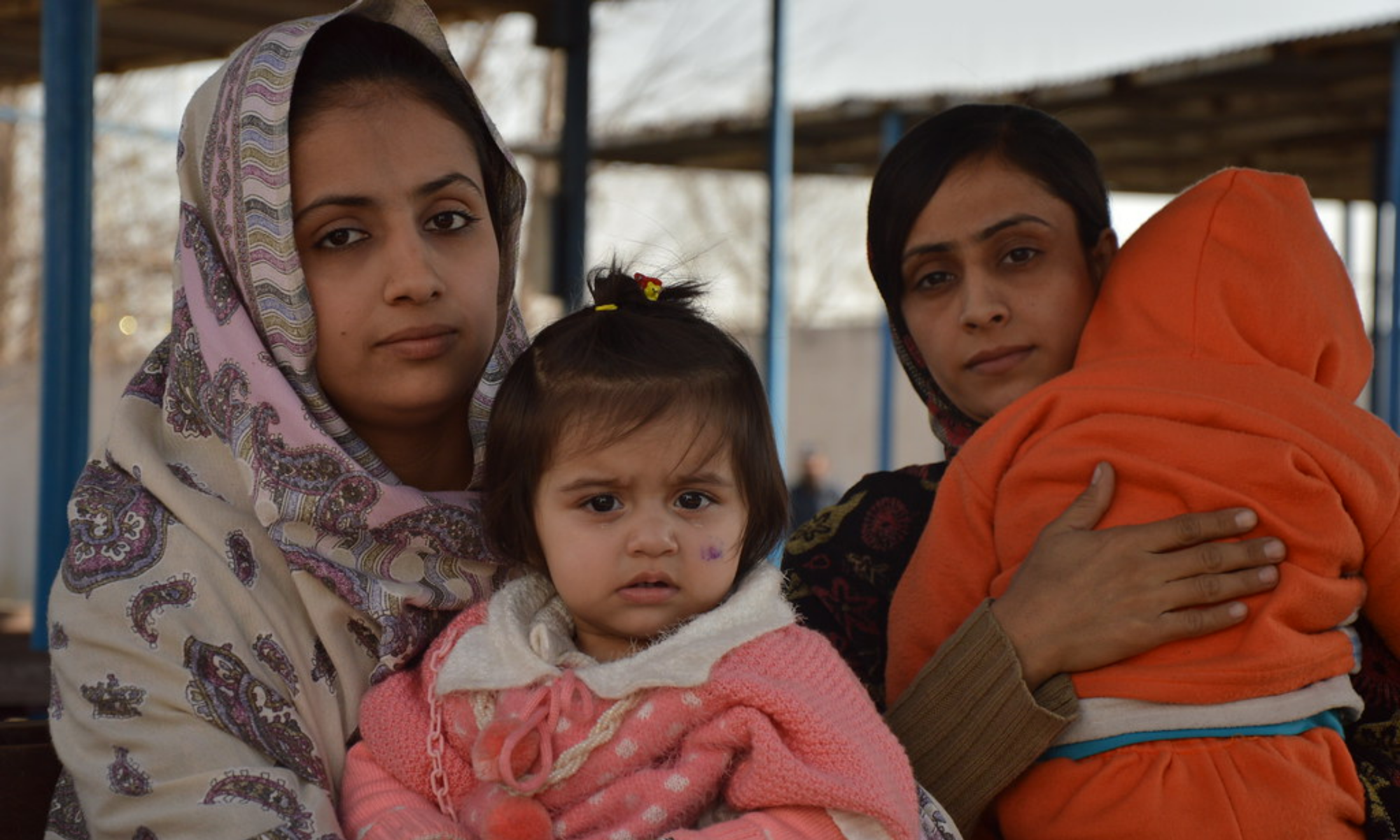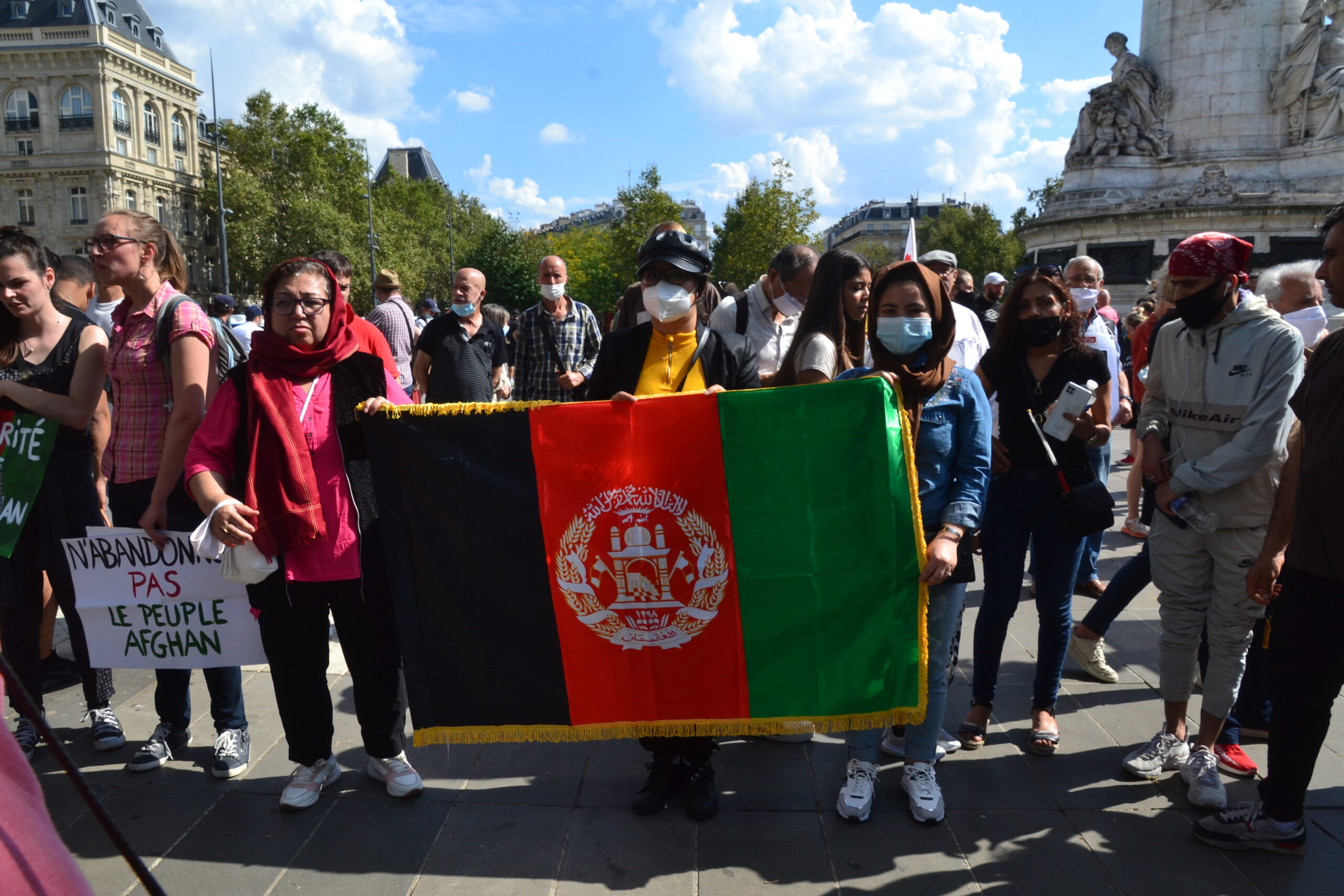How Afghan musicians are fighting for their heritage
Afghanistan’s rich and dynamic musical culture is under threat from the Taliban. Safi Bugel speaks to artists and campaigners about the history, and how we can help ensure there’s a future.
Safi Bugel
22 Oct 2021

Edit of photography by World Economic Forum: the Afghan Women's Orchestra, Zohra
As a crossroads point between Central, South and Southwest Asia, Afghanistan has long enjoyed a rich and dynamic musical culture. Influenced by the sonic traditions of adjacent nations and the existence of different ethnicities within, the country has developed a formidable canon that refuses to be bound by a single genre, style or place.
So, when the Taliban announced their intentions to ban music on the shaky grounds of ‘moral corruption’ in August, the threat posed to those in Afghanistan was profound. Institutions have since been closed, orchestras have disbanded and radio broadcasts have been replaced by austere religious chants – some of this is down to the Taliban, while some of it is self-censorship out of fear. Listening to music is now forbidden and a crackdown on practicing one’s craft, even within private settings, has led to individuals disposing of and destroying their treasured instruments. The news is worse for women, whose relationship with the art form was already contentious amongst certain communities in Afghanistan: now, performing music as a woman is both frowned upon and dangerous.
“My guitar was my confidant – whenever I was upset or sad, I had no-one to speak with except my guitar. Now I feel I lost myself”
Freshta
The murder of folk singer Fawad Andarabi on 27 August was a stark reminder to musicians that, alongside their pastimes, livelihoods and history, their lives are also on the line. More recently, Rahimullah, a traditional musician from Badakhshan, was also reportedly killed.
“The situation in Afghanistan is dire and especially dangerous for musicians,” says a singer still based in Kabul, who chose to turn down even an alias when talking to gal-dem for fear of endangering anyone else on the ground. Just two months ago, he held a teaching post at a major music institution, guiding a new generation of young artists through western and eastern classical traditions. The school was one of several in the city to break boundaries with its mixed gender classes, but when the Taliban raided the building, all progress was unravelled. “We are now staying in hiding and can’t go outside,” he explains. “My aim was to create an atmosphere in which all kinds of people can express themselves and explore Afghan heritage, but right now everything has gone,” he continues, “I feel as though I am in a void.”
Music was forbidden in Afghanistan during the Taliban’s rule from 1996 to 2001. Now with their return, and with support from other extremist groups including Al-Qaeda, ISIS and the Tehrik-i-Taliban Pakistan, the fraught gains made over the last twenty years, from women’s rights to emerging subcultures, are at grave risk.
Zohra, for example, was established in 2017 as the first all-women orchestra in the country. Defying conservative perceptions of women in music by touring worldwide, they have been a symbol of hope for many Afghans. However, the institution they once trained in has now been transformed into a militia base. Further, on top of Afghanistan’s already-extensive repertoire, which includes ghazals, classical music, regional folk styles and more, is an exciting wave of pop music that has flourished over the last twenty years. Pairing old forms and instruments such as the rubab and tabla with synthesisers and new recording techniques, the sounds are innovative and distinctively Afghan. Yet, the silencing of musicians risks the genre being forgotten altogether. “All that now seems like a distant dream,” says Hasib Sayed, founder of international talent company Sherzaad Entertainment Inc., “The entire nation of Afghanistan seems to be suffocated.”
Hasib managed to narrowly escape Afghanistan in August, leaving for Istanbul via a US Military Plane with his partner, the famed Afghan pop star Aryana Sayeed. Though they have lost their native audience and, for Aryana, the ability to perform in the motherland, the pair plan to pursue their careers in music overseas. To Hasib, this opportunity is nothing short of a “miracle.” However, others who are unable to leave the country have not been as fortunate: with their professions prohibited, many have turned to selling their possessions to make ends meet.
Recognising the urgent need to protect endangered musicians on the ground, an international team of academics, musicians and human rights professionals have joined forces to offer their support. The Campaign to Protect Afghanistan’s Musicians aims to get governments across the world to recognise that Afghanistan’s musicians are being targeted by the Taliban because they are “members of a particular social group” under the 1951 UN Refugee Convention. Accordingly, it calls for musicians to be named as a priority category for humanitarian visa programmes, such as the UK’s Afghan Citizens Resettlement Scheme.
“These musicians are not rich or well connected; they have only the thin, but powerful, thread of solidarity that connects them to others abroad who care that if they stay in Afghanistan they will starve or be killed”
Dr Katherine Butler Schofield
“There is no room for music or musicians under the Taliban,” says Dr Katherine Butler Schofield, Senior Lecturer in South Asian Music and History at King’s College London and lead coordinator of the project. “These people are not rich or well connected; they can’t mortgage their houses or leverage their contacts to get out,” she says. “They have only the thin, but powerful, thread of solidarity that connects them to others abroad who care that if they stay in Afghanistan they will starve or be killed. Literally their only hope is for governments elsewhere to recognise their rights and grant them humanitarian protection.”
The campaign is currently lobbying governments to resettle Afghanistan’s musicians, but the organisers also have a more long-term (albeit unlikely) goal. They want the Taliban to let musicians and listeners pursue and enjoy music in their homeland without harassment.
“If these people get killed, silenced or scattered, the music dies, the heritage is lost,” says Katherine, recalling the hereditary nature of the art form, which relies on oral teaching from ancestors and the passing down of instruments for posterity. “It’s about preserving this thing that is theirs, which is unique and which they love,” she adds.
This deep-rooted connection with sound and performing is something that Freshta developed while studying guitar at the esteemed Afghanistan National Institute of Music (ANIM). Like many, the 17-year-old’s relationship with her instrument was significant. “My guitar was my confidant,” she says, “whenever I was upset or sad, I had no-one to speak with except my guitar.”
“Right now I don’t have a voice in my country, but I will never stop. I will fight until my last breath for my country’s musical heritage, art and culture”
Anon
Taliban-operated checkpoints at the borders meant that Freshta had no choice but to leave her guitar behind when migrating to Pakistan with her family. The impact of parting with something she felt so attached to still lingers: “I feel like I lost something important in my inside. I don’t have my calmness, my real comfort anymore,” she says. “Now I feel I lost myself.”
Freshta’s grief resonates with the former music teacher, who destroyed his instruments in order to protect both his family and himself. “For me, it was very painful. My musical instruments were like part of my body,” he says. “Music for me is the reason of life. It means love: a universal language to connect me with nations and people. It’s also the most important way for me to connect to Haqiqat.”
With no instruments to play, no job to return to and no community to share music with, the teacher clings onto what he has left: hope. He shares his wish to secretly bury instruments underground, as his professor did back in 1996. “If we succeed, one day when I might not even be alive, I believe future music generations of Afghanistan will find them and use them to tell all our unheard and untold stories through these instruments,” he says. “Right now I don’t have a voice in my country, but I will never stop. I will fight until my last breath for my country’s musical heritage, art and culture.”
For information on how to support the Campaign, see: https://afghanmusicians.wordpress.com/how-you-can-help/









